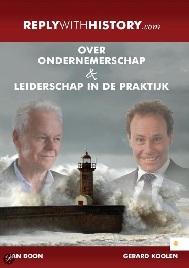75. Stop the bonuses

Dear Gerard,
I totally agree with you, the problem is that the crisis caused so much destruction that the responsible parties, i.e. the politicians and regulators were willing to take big risks and this prevented new developments. How do we change this? Who will take the lead in building the new economy? In addition to our normal investment activities, from time to time parties ask us to look at special projects. These parties require new capital for their projects. During the period 2012-2013, this occurred about 6-7 times. I will discuss some of these projects and state the reasons why we did not invest or gave a negative judgment. I will describe a new initiative that I am certain will be successful in the next article.
In early 2013, a Dutch entrepreneur came to us who had already invested in a soap product. There are several shops at prime positions in Amsterdam where you can purchase the product. The creator of this product was inspired by a visit to the U.S. and bought patents in Israel and the U.S. to sell it.
The cost to use prime location outlets was high. In addition the “key money” to acquire the prime locations had to be paid in advance and the sales staff had to be trained and employed to achieve high sales. The first years were loss-making and I wanted to know exactly what the losses in 2010 and 2011 were and see the audited financial statements. I was not going to invest before I had all the necessary information. Then the entrepreneur went on to add another special product: he wanted the i-Centres in the big cities in the Netherlands at prime locations to sell Apple accessories. He had a difficult relationship with two banks, who did not want to finance his new activities. Then he made a stupid decision, he bought the i-Centres without having definite funding in place and without a disclaimer. He asked about my fees to bring in new investors. Here lies the crux of the story: I did not want anything, but had to be convinced that the company had value and a decent growth potential. In the end, we could not be sure about this and finally we dropped out. The company could not take the i-Centres, the banks did not cooperate and the investors did not invest. As a result, the company then filed for bankruptcy.
Recently, there has again been a negative story in the news about Rabobank regarding the sale of derivatives to mitigate interest rate risk. The sellers received good bonuses to sell these products to SMEs, but often did not tell the whole story, i.e. if interest rates fell further, the product would cost extra money. Rabo did not place the customer first. After Legiolease (leasing shares), risky mortgages (100% financing) and “woekerpolissen” (assurance products with hidden costs), it is depressing to note that once again a financial product had a negative impact on bank customers. The only way to combat these kinds of abuses is to prohibit these kinds of products for non-professional parties and / or stop the bonus system for bankers. Bank employees should be only be rewarded if performance and customer satisfaction are high. In these cases KIS applies – Keep It Simple.
Regards,
Jan Stam












Leave a Reply